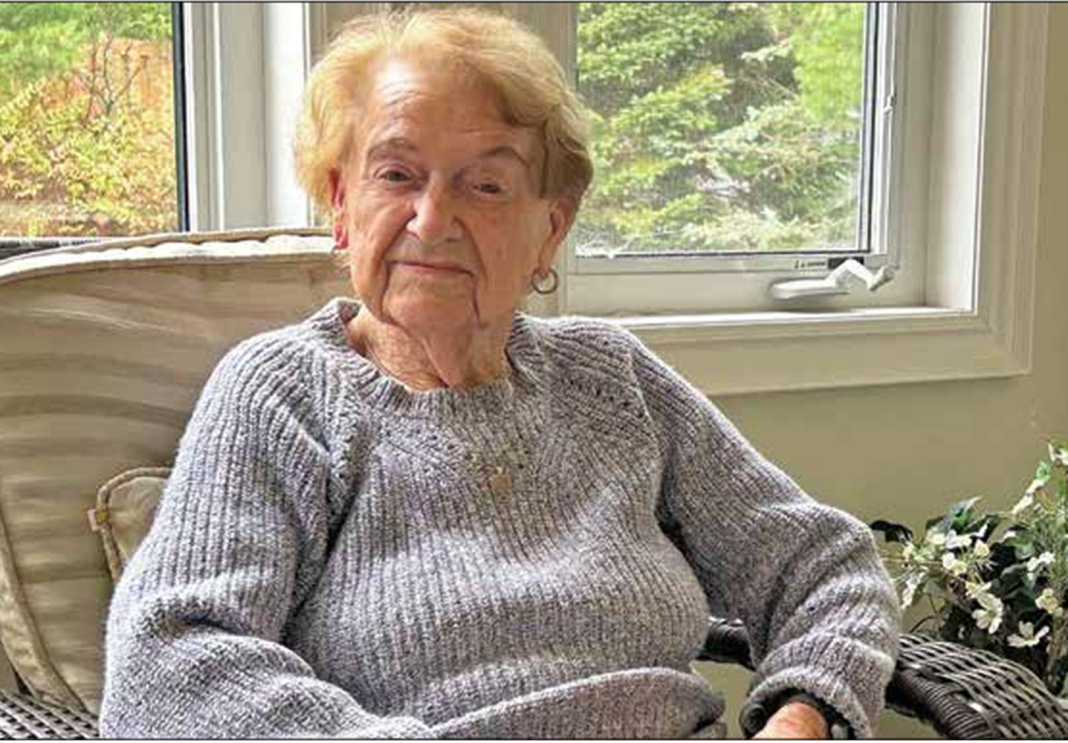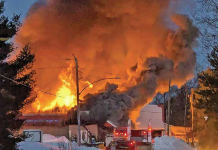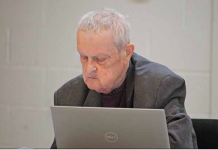As a young girl, Minden’s Lainey Hunting remembers sneaking out of her home at night – not for fun, or to socialize with friends, but for survival.
The 97-year-old grew up in Eindhoven in the Netherlands – a city ransacked and occupied by German forces for the bulk of the Second World War. Hunting was 12 when her hometown was taken over.
“I remember waking up one night because there was a lot of noise. There were so many cars out on the road heading down the street. Not many people had a car back then, but the ones that did left Holland because they knew the Germans were coming,” Hunting said.
It was May 1940 and the Axis powers, led by Nazi Germany, invaded the Netherlands as part of a larger plan to conquer France and secure important airfields and ports for future use against the U.K. Hunting said the occupation was swift.
Soldiers quickly took over a Philips Electronics factory in the city, using it as a homebase for its operations. They implemented an 8 p.m. curfew for residents, took what they wanted from people’s homes and seized all existing food supplies.
Hunting said she and her family – mom, dad and six siblings – survived on scraps. Workers at the Philips factory served soup once a week, but other than that it was up to the family to scrounge up whatever food they could find.
“I’d sneak out after curfew to go to the potato fields. Sometimes there would be little ones left and I’d be so excited taking them home,” Hunting said. “It was a risk… if a German soldier had spotted me, I’d have been shot for sure.”
Hunting said she was terrified of the Nazis. After the occupation, Philips workers initially refused to make bullets and weapons for the Axis – so German soldiers took 10 each day and executed them until the workers relented. She also recalls observing the Germans rounding up Jews and sending them to concentration camps.
One of her best friends at the time, a Jewish girl from Austria, attempted to flee the city with her family, though Hunting doesn’t know if they made it. “I never saw her again,” she said.
There was no school. Instead, Hunting said the days were filled with frequent visits to the nearby bomb shelter. The sirens would ring multiple times per day, she said, signalling bombers in the sky.
“There was a woman who told jokes to try and keep all the kids quiet and distracted. But we’d always hear the whistles, which meant the bombs were coming. Then we started to pray,” Hunting said.
Eindhoven was completely levelled by the time the Allied forces re-took it in September 1944 – it was the first Dutch city to be liberated. Hunting, by then 17, remembers seeing the tanks rolling in, carrying waving soldiers. The red maple leaf stitched to their uniforms coming across like a giant beacon of hope.
“I remember everyone climbing on the tanks and singing – people were so happy,” she said.
It was short-lived – a few days later, the Germans returned with bombs of their own. Thousands died, Hunting said.
“I’ll always remember the Canadians covering as many bodies as they could. So much that seemed like nothing much, or no big deal, they did it. That meant so much to the people of Holland,” Hunting said.
Hunting married in her early 20s and, with the country still rebuilding, opted to move to Canada – first to New Brunswick, then Bronte, a fishing village near Oakville. She and her husband, Harry, came to Haliburton County in 1967, purchasing the former Big Bob Lake Lodge with their friends, William and Nellie Brouwers.
As Remembrance Day approaches, Hunting said she’ll always be thankful of the Canadian soldiers who freed her from German captivity.
“They helped us out when nobody else could… in schools in Holland today, kids learn a lot about Canada and the liberation. There’s a big connection between the two countries,” Hunting said. “The Canadians saved us.”





